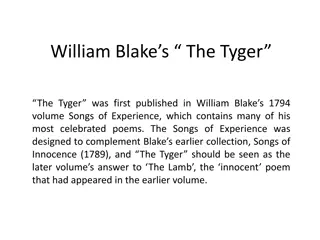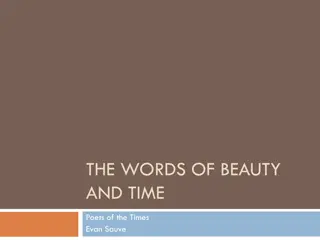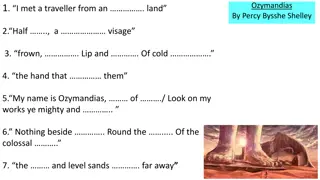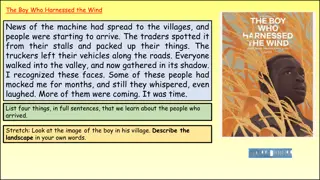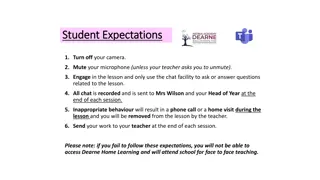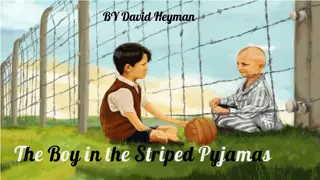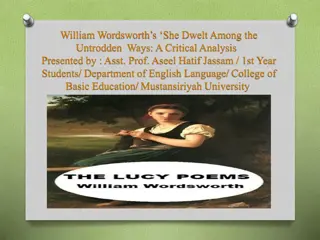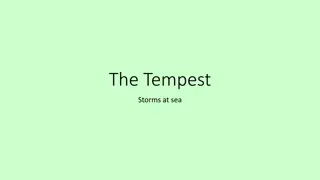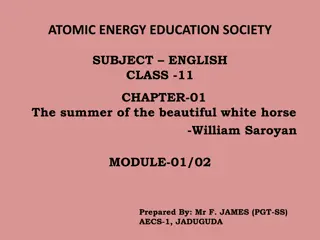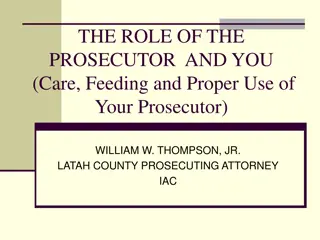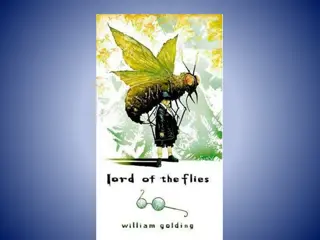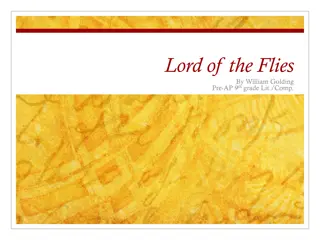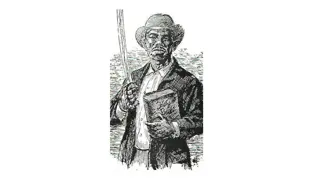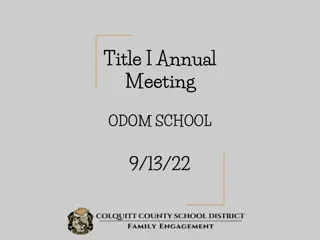Analysis of "The School Boy" by William Blake
In William Blake's poem "The School Boy," a young boy expresses his unhappiness with school, longing for freedom and nature. He resents the joyless lessons and yearns for a life outdoors. The poem highlights the contrast between the boy's desire for joy and freedom with the confinement and sorrow of the school environment. Through vivid imagery and emotional depth, Blake conveys the universal theme of the struggle between youthful innocence and imposed education.
Download Presentation

Please find below an Image/Link to download the presentation.
The content on the website is provided AS IS for your information and personal use only. It may not be sold, licensed, or shared on other websites without obtaining consent from the author. Download presentation by click this link. If you encounter any issues during the download, it is possible that the publisher has removed the file from their server.
E N D
Presentation Transcript
The School Boy by William Blake Unit: Six, Lesson:03 Class: HSC (xi-xii) English English 1 1st Paper Paper st
After watching this class, you will be able to Know the meanings of difficult words. discuss the Poem. Write the summary
In this poem "The School Boy" Blake writes about a young boy who is unhappy with his school where teachers give joyless lessons. He would rather like to be outdoors and summer day. He pleads with his parents to rescue him from the drudgery of school. dour-faced enjoy the
The School Boy by William Blake I love to rise ( ) in a summer morn, When the birds sing on every tree; The distant( ) huntsman( ) winds his horn( ), And the skylark ( ) sings with me: O what sweet company! ( ) Stanza- 1/6
But to go to school in a summer morn,- O it drives( ) all joy away! Under a cruel ( ) eye outworn( ), The little ones spend the day In sighing( ) and dismay( ). Stanza- 2/6
Ah then at times I drooping() sit, And spend many an anxious( ) hour; Nor in my book can I take delight, Nor sit in learning's bower( ), Worn( ) through with dreary( ) shower( ). Stanza- 3/6
How can the bird that is born for joy Sit in a cage and sing? How can a child, when fears( ) annoy( ), But droop his tender( / ) wing( ), And forget his youthful( ) spring! Stanza- 4/6
O father and mother if buds( ) are nipped(), And blossoms( ) blown away; And if the tender plants are stripped( ) Of their joy in the springing day, By sorrow and care's dismay,- Stanza- 5/6
How shall the summer arise( ) in joy, Or the summer fruits appear( ? Or how shall we gather( ) what griefs destroy, Or bless the mellowing( ) year, When the blasts( ) of winter appear( )? Stanza- 6/6
Summary: In this poem, a young boy expresses his unhappiness with his school, lessons and teachers. He tries to enjoy summer s days, instead of going to school. But his all joys fade away as he has to go to school where he spends weary hours. He finds no delight in or attraction for his study. He considers himself a bird that can t be caged. So, he pleads his parents to rescue him from the drudgery of school. If children are forced to stay at school, they will fail to learn anything.
Name: Mohammad Shahidullah Head of the English Department Colonel (Rtd.) Oli Ahmed Bir Bikrom University College Satkania, Chittagong. Contact Cell: 01819 646039 email: shahid.epa@gmail.com




